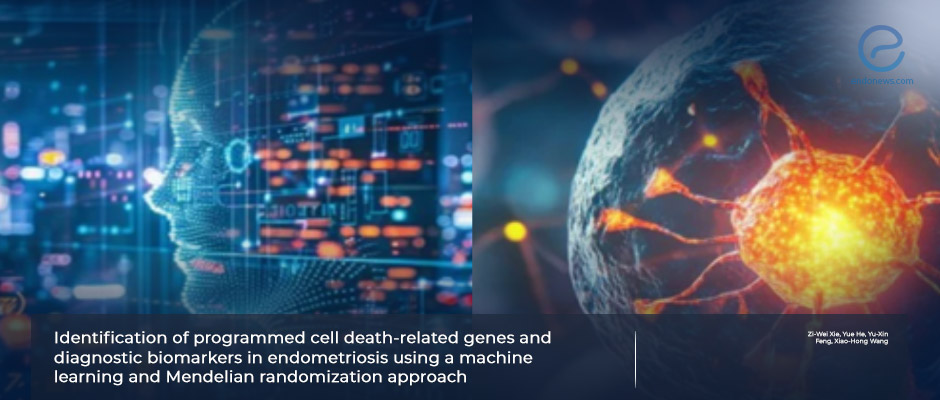Study Sheds Light on the Role of Programmed Cell Death in Endometriosis
Oct 22, 2024
The model provided by the study could help speed the diagnosis and treatment of endometriosis.
Key Points
Highlights:
-
This study identifies key biomarkers related to programmed cell death in endometriosis, offering new pathways for early diagnosis and personalized treatment.
Importance:
- Identifying biomarkers could help improving diagnostic accuracy and treatment options for endometriosis, addressing delays in diagnosis.
What’s done here:
- This study analyzed datasets from the Gene Expression Omnibus (GEO) to find differentially expressed genes (DEGs) linked to programmed cell death.
- Differentially expressed genes in samples obtained from patients with endometriosis (n=77) and those without (n=34).
- Mendelian randomization and machine learning were applided to identify strong biomarkers for endometriosis.
- Researcher developed a diagnostic model based on these biomarkers and confirmed their relevance through molecular docking studies.
Key results:
- Three key biomarkers for endometriosis were identified: TNFSF12 (upregulated), AP3M1 (downregulated), and PDK2 (upregulated).
- All three genes had significant binding affinity with medical treatments currently used in the clinic.
Limitations:
- The study is entirely based on bioinformatics analysis and the findings need to be validated experimentally.
- The conclusions were drawn from a restricted number of endometriosis cases and more research on a bigger group of patients is necessary.
- The model provided here needs to be validated externally before it can be applied in the clinic.
Lay Summary
Three genes, TNFSF12, AP3M1, and PDK2 could be key biomarkers of programmed cell death in endometriosis, according to a new study published in the peer-reviewed scientific journal Frontiers in Endocrinology.
“These findings provide new directions for the early diagnosis and personalized treatment of [endometriosis],” the study authors said.
It is already known that programmed cell death plays a key role in the development of endometriosis. However, it is not well-understood how this relates to the formation of endometrial lesions, which in turn causes delays in diagnosis.
In the present study, a team of researchers from China led by Dr. Xiao-Hong Wang of the Department of Gynecology, People's Hospital Affiliated of Fujian University of Traditional Chinese Medicine in Fuzhou identified differentially expressed genes between samples obtained from women with endometriosis and those without. Then, the team cross-referenced these genes with genes that are associated with programmed cell death and identified differentially expressed programmed cell death-related genes. Finally, they used machine learning to identify biomarkers that were strongly associated with endometriosis.
The researchers found that the expression of TNFSF12 and PDK2 were markedly upregulated in samples obtained from women with endometriosis while the expression of AP3M1 was significantly downregulated. Using single-cell analysis, the researchers further highlighted the potential of these three genes as biomarkers of endometriosis. Importantly, the team showed, using molecular docking studies, that these genes had significant binding affinity with medical treatments that are currently being used in the clinic.
The researchers concluded that their findings shed light on the molecular characteristics of programmed cell death in endometriosis.
Research Source: https://pubmed.ncbi.nlm.nih.gov/39149122/
biomarker endometriosis diagnosis personalized treatment machine learning differentially expressed genes

